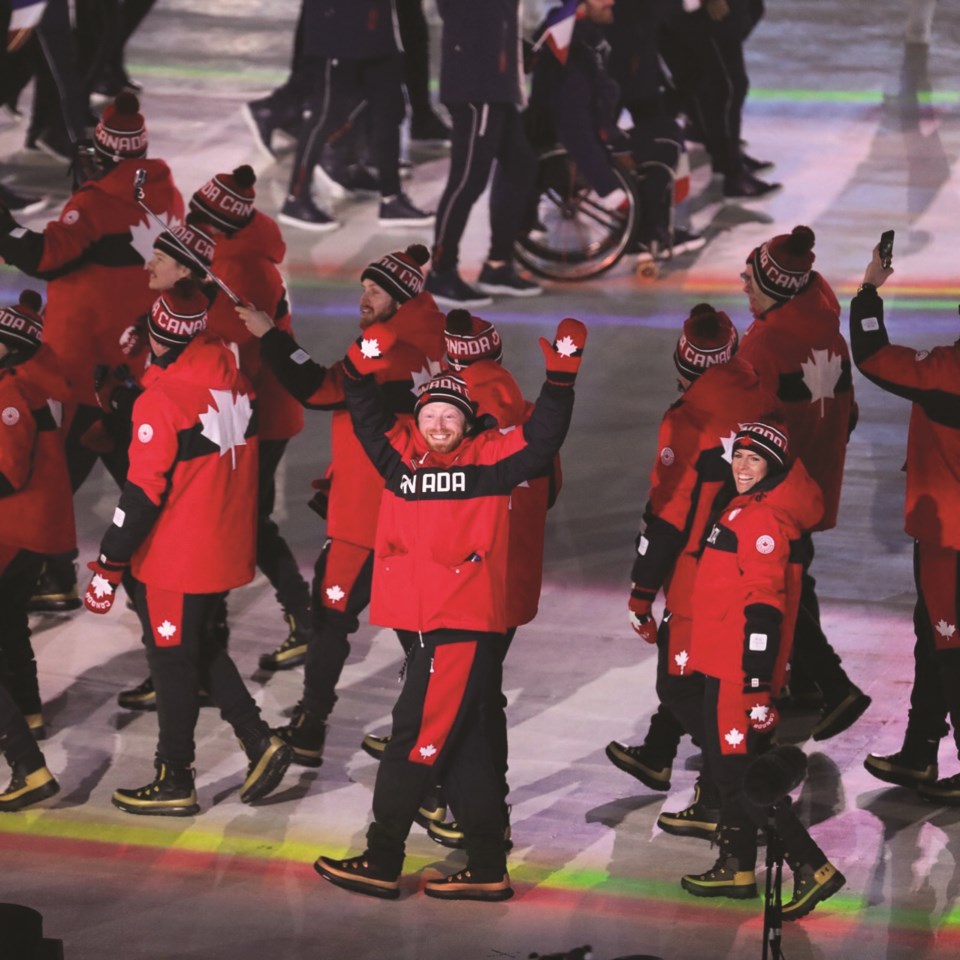For many athletes the COVID-19 pandemic brought with it a whole new collection of challenges. But for Paralympic snowboarder John Leslie, who recently announced his retirement from the sport, the pandemic turned out to be a blessing in disguise.
For the last 10 years, from the time Leslie was 18, his days were accounted for as a part of his training schedule for the Canada Snowboard team. Between meals, workouts, training sessions and competitions, he was having difficulty finding a life-to-snowboard balance, and he was starting to feel like his life was missing something because of it.
Cue the pandemic.
“[COVID-19] really slowed things down with our competitive calendar. We didn’t travel internationally this year, I got to work a full-time job in Whistler, made a big friend [base], and I’ve been going to school for personal training,” said Leslie.
“So I’ve kind of done all this stuff over the last year and just had a really positive and open conversation with Canada Snowboard this last week. They’re a high-performance national team, they’re looking for quite a lot of commitment for next year and I just feel really good about where I am and what I have going on.”
As a child growing up in Arnprior, Ont., Leslie was a competitive ski racer. But after losing his leg to cancer at 10 years old, his focus shifted to snowboarding—a more forgiving sport for someone with a prosthetic leg.
And before long, Leslie was starting to get noticed for his high-end skill level.
“I started at a young age so by the time I got to high school, it didn’t matter that I was on one leg, I was competing just the same,” said Leslie.
“Then once I got into disabled snowboarding, my talent became exponential, as I was able to communicate with other people living with disabilities and the adaptations they were making to their snowboard setup. Like, I snowboarded my whole high-school career with my walking leg, which when you think about how a leg would work when walking that would function completely different than snowboarding. So it was cool to figure out all those things and get better at snowboarding.”
The trajectory he found himself on resulted in Leslie competing at two Paralympic Games—Sochi 2014 and PyeongChang 2018—each with their own unique experiences.
According to Leslie, 2014 was the “memories” Games. Unsure if he’d ever be back, Leslie just wanted to soak up as many experiences as he could and enjoy every minute of the event, even if his results suffered because of it.
After finishing 7th in Sochi, and realizing just how much work it takes to medal at the Paralympic Games, Leslie re-focused and set his sights on doing whatever it took to finish on the podium in 2018.
Unfortunately for Leslie, the results weren’t quite what he was hoping for, finishing 7th in snowboard cross and 8th in banked slalom in PyeongChang.
But luckily for Leslie, who was experiencing a bit of a burnout after those Games but still had eyes on the 2022 Paralympic Games, the pandemic came along and threw a wrench in his plans. Had it not, Leslie believes he’d still be searching for that missing part of his life today.
“And so last year with the pandemic, [Canada Snowboard] weren’t able to tell us what we were doing. So that was the first time in my adult life that I was like, ‘well I’ll get a job, I need money.’ And then with the job came friends and like a little bit more of a community in Whistler and actually being able to make plans two weeks in advance,” said Leslie.
“I don’t think I would have had that break had the pandemic not happened and it was always in my plans to retire after the next Games, so I think I would have come out of the next Games just lost. So this was a nice way to transition.”
Moving forward, Leslie plans to continue enjoying his new life away from competitive snowboarding. He plans to continue working as a personal trainer at the Whistler Creek Athletic Club and get back into his motivational speaker work.
But whatever he fills his days with, one thing is certain: his love for snowboarding isn’t going away anytime soon.
“I’m going to still stay involved with the [Canada Snowboard] team, but for me right now the focus is on making a life after sport in Whistler. But continue to snowboard too.” he said.
“I still love snowboarding, but now I’m hoping to do some more backcountry projects.”




.jpg;w=120;h=80;mode=crop)